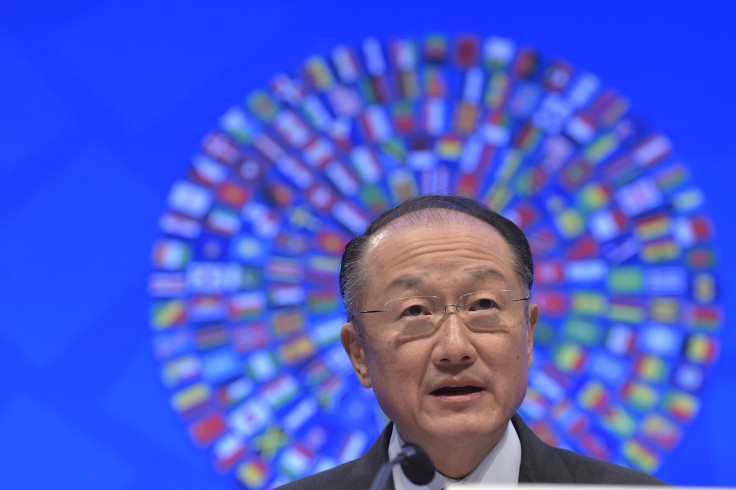World Bank Announces Creation Of $500 Million Pandemic Insurance Plan To Combat Disease Outbreaks

The World Bank on Saturday announced the launch of the Pandemic Emergency Financing Facility (PEF) — a $500 million insurance fund to help nations combat deadly and costly disease outbreaks. In a statement, the global lender said the fund was being created to prevent another Ebola-like health crisis, which cost nations in West Africa an estimated $2.8 billion over two years.
“Pandemics pose some of the biggest threats in the world to people’s lives and to economies, and for the first time we will have a system that can move funding and teams of experts to the sites of outbreaks before they spin out of control,” Jim Yong Kim, president of the World Bank Group, said in the statement.
“This facility addresses a long, collective failure in dealing with pandemics. The Ebola crisis in Guinea, Liberia and Sierra Leone taught all of us that we must be much more vigilant to outbreaks and respond immediately to save lives and also to protect economic growth,” he added.
The PEF will be a combination of catastrophe insurance and bonds, marking the first time “Cat-bonds” will be used to combat infectious diseases. In the event of an outbreak, the facility — designed in collaboration with the World Health Organization and the private sector, will release funds quickly to the affected countries and qualified first responder agencies.
However, the insurance will be limited to only those classes of infectious diseases most likely to cause major epidemics, including several types of influenza, Ebola and Marburg, and respiratory infections such as SARS and MERS. The list does not include the mosquito-borne Zika virus, which is currently spreading through Latin America and has been linked to severe birth defects, but Kim reportedly said that the World Bank was putting together a separate “cash window” to fund response to Zika and other outbreaks.
Japan, which would be hosting a summit of G-7 leaders next week, has committed the first $50 million in funding toward the PEF.
"Japan is proud to support the Pandemic Emergency Financing Facility, which prevents pandemics from undermining important development achievements,” Taro Aso, Japan’s deputy prime minister and finance minister, said in the statement. “Innovative financing for crisis responses by the PEF, together with financing for preparedness and prevention in peacetime including through IDA [International Development Association], are important to mitigate human and social losses and to help quickly recover in the event of a crisis. It is cost-effective and should be emphasized at all stages of economic development."
© Copyright IBTimes 2024. All rights reserved.






















